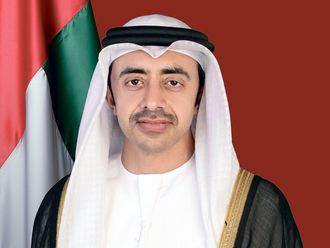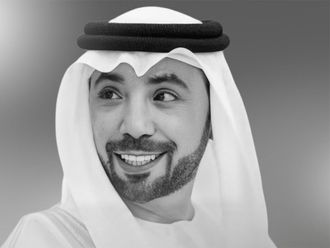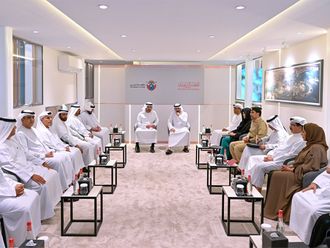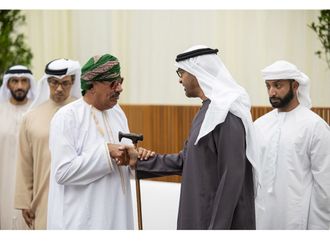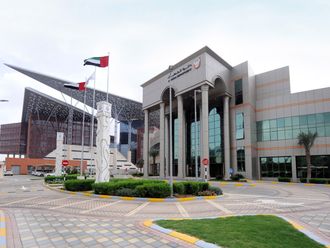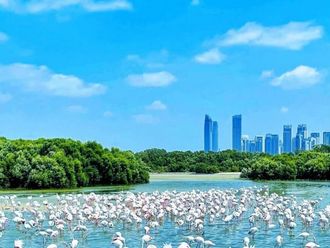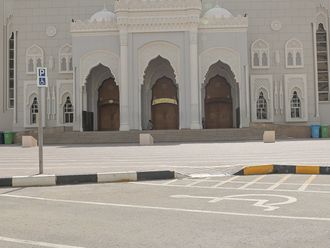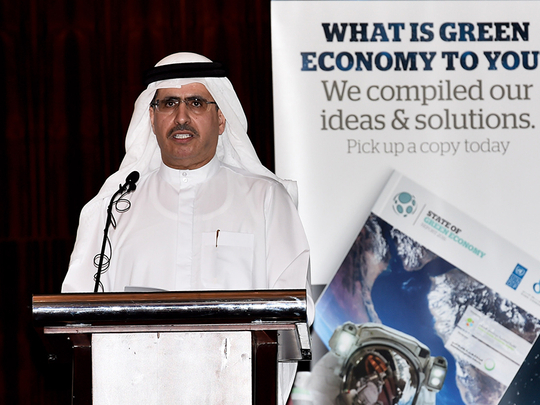
Dubai: Green economy leaders in the UAE offered high praise on Monday for a green report that shares best practices and innovations to decarbonise economies for a sustainable tomorrow.
The State of Green Economy Report 2016, wrote by Dubai Carbon Centre of Excellence and backed by the United Nations Development Programme, was presented in Dubai on Monday before a packed gathering at Raffles Hotel comprising government agencies and departments.
The report was released in the UAE on the heels of the UN Climate Change Conference in Paris (COP 21) late last year in which delegates from 195 countries agreed to limit temperature increases to 1.5 degrees Celsius in the century ahead to stave off global warming.
The 288-page green report chronicles strides made by the UAE to create more efficient electricity generation, renewable energy, energy conservation, youth programmes, green buildings and sustainable development.
The report analyses challenges for the low-carbon global economy, following through on the Dubai Declaration — issued at the first Green World Economy Summit in April 2014 — which aims for the UAE to become a global capital of the green economy.
At the heart of the Dubai Declaration lies UAE Vision 21, a national agenda that “focuses on improving the quality of air, preserving water resources, increasing the contribution of clean energy and implementing green growth plans” by 2021.
The United Nations Environmental Programme describes a green economy as “one that results in improved human well-being and social equity, while significantly reducing environmental risks and ecological scarcities. In its simplest expression, a green economy can be thought of as one which is low-carbon, resource-efficient and socially inclusive”.
Saeed Mohammad Al Tayer, vice-chairman of the Supreme Energy Council and managing director and CEO of Dubai Electricity and Water Authority (Dewa), joined Waleed Salman, chairman of the Dubai Carbon Centre of Excellence, on stage to thank a long list of partners who helped contribute to the report.
In his remarks, Al Tayer thanked partners, noting that the report “sheds light on policies through which the United Arab Emirates aims to transform into a model of green economy. This implies following the guidance of our leadership in achieving growth and development while reaching 24 per cent of clean energy by 2021 and minimising the ecological impact”.
He said the report explores the directives of the Dubai Clean Energy Strategy 2050 which aims, through renewable energy such as solar power, to save seven per cent of energy resources by 2020, 25 per cent by 2030 and 75 per cent by 2050.
Salman said the green economy report “encourages innovation, fast-tracking the green transition process, as well as the UAE’s relentless endeavours to promote its position as a global model and hub for the green economy”.
The report, Salman said, will help public and private sectors in the UAE work toward a “resilient transition towards a green economy”.
By the numbers
Statistics released by the Intergovernmental Panel on Climate Change (IPCC) show the UAE’s National Greenhouse Gas Inventory reached an estimated 199.65 million tonnes of tCO2e (tonnes of carbon dioxide equivalent) released in 2013, of which, Dubai accounted for 47 million tonnes tCO2e. In 2014, Dubai’s estimated emissions decline to 45 million tonnes tCO2e. The inventory calculates emissions from five major sectors, namely, energy, industrial processes, agriculture, land use and waste.
Across the UAE in 2013, the IPCC said:
• 1 per cent of gases came from agriculture
• 8 per cent was released from the cement industry
• 8 per cent came from the aluminium industry
• 22 per cent of emissions came from road transportation
• 6 per cent generated from waste
• 33 per cent of emissions were generated by electricity and water facilities
• 15 per cent was attributed to the oil and gs industry
SOURCE: IPCC
Dewa plans special expedition
Dubai: Dubai Electricity and Water Authority (Dewa) will send some of their employees on a special expedition to the Amazon Rainforest in Peru in May, as part of its ongoing efforts to achieve its vision to become a sustainable innovative world-class utility, and raise awareness about environmental issues, especially conserving natural resources and reducing carbon emissions.
The expedition was planned based on the success of Dewa’s last expedition to Antarctica, which was part of the 2041 International Antarctic Expedition initiative. The expedition aims to highlight the effects of global warming, raise awareness regarding the importance of preserving Antarctica and to stop major companies from drilling and mining in the Antarctic, by the time the international protection protocol expires in 2041.
“Dewa strongly supports the Dubai Plan 2021, and the long-term national Green Economy for Sustainable Development initiative, launched by His Highness Shaikh Mohammad Bin Rashid Al Maktoum, Vice-President and Prime Minister of the UAE and Ruler of Dubai, to make the UAE a pioneer in the field of environmental awareness,” said Al Tayer.
Al Tayer explained that Peru was the destination of choice because of the clearly visible effects of climate change within the Amazonian rainforest. He also mentioned that the expedition aims to study the effects of climate change on biodiversity, ecosystems and the inhabitants of the Amazon.
“Dewa takes priority in contributing positively towards the effects of climate change and is fully-committed to developing their employees and broadening their knowledge on the topic. Sustainability is a major part of Dewa’s government and public identity. Staff enthusiasm to participate in this expedition reflects their commitment as ambassadors to environmental issues and their desire to raise awareness on the importance of preserving our natural resources, for generations to come,” added Al Tayer.
“The expedition will run for 12 days and will focus on three specific areas in Peru. These are the desert coast, the cloud forests of the Andes and the lowland rainforest. Once returned from the trip, the participating employees will join the ranks of already existing Climate Change Champions and share the knowledge they gained from the expedition, with the public, and other Dewa employees. Through this initiative, Dewa promotes a culture of sustainability among employees,” said Salman in his capacity as executive vice-president for Strategy and Business Development at Dewa.
—WAM


